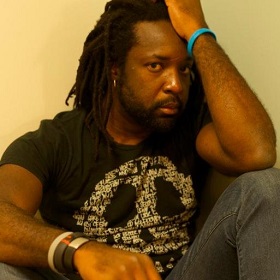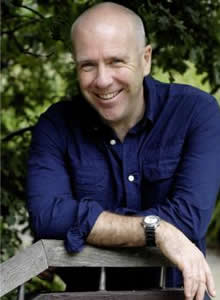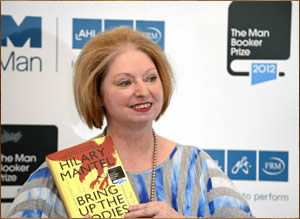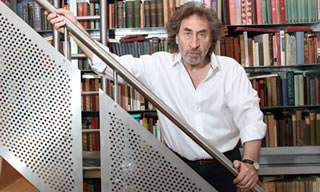Booker Prize voor Paul Lynch
De Ierse schrijver die Paul Lynch ontvangt de Booker Prize voor zijn dystopische roman ‘Prophet Song’. Paul Lynch werd geboren op 9 mei 1977 in Limerick in het zuidwesten van Ierland. Zie ook alle tags voor Paul Lynch op dit blog.
Uit: Prophet Song
“The night has come and she has not heard the knocking, standing at the window looking out onto the garden. How the dark gathers without sound the cherry trees. It gathers the last of the leaves and the leaves do not resist the dark but accept the dark in whisper. Tired now, the day almost behind her, all that still has to be done before bed and the children settled in the living room, this feeling of rest for a moment by the glass. Watching the darkening garden and the wish to be at one with this darkness, to step outside and lie down with it, to lie with the fallen leaves and let the night pass over, to wake then with the dawn and rise renewed with the morning come. But the knocking. She hears it pass into thought, the sharp, insistent rapping, each knock possessed so fully of the knocker she begins to frown. Then Bailey too is knocking on the glass door to the kitchen, he calls out to her, Mam, pointing to the hallway without lifting his eyes from the screen. Eilish finds her body moving towards the hall with the baby in her arms, she opens the front door and two men are standing before the porch glass almost faceless in the dark. She turns on the porch light and the men are known in an instant from how they are stood, the night-cold air suspiring it seems as she slides open the patio door, the suburban quiet, the rain falling almost unspoken onto St Laurence Street, upon the black car parked in front of the house. How the men seem to carry the feeling of the night. She watches them from within her own protective feeling, the young man on the left is asking if her husband is home and there is something in the way he looks at her, the remote yet scrutinising eyes that make it seem as though he is trying to seize hold of something within her. In a blink she has sought up and down the street, seeing a lone walker with a dog under an umbrella, the willows nodding to the rain, the strobings of a large TV screen in the Zajacs’ house across the street. She checks herself then, almost laughing, this universal reflex of guilt when the police call to your door. Ben begins to squirm in her arms and the older plainclothesman to her right is watching the child, his face seems to soften and so she addresses herself to him. She knows he too is a father, such things are always known, that other fellow is much too young, too neat and hard-boned, she begins to speak aware of a sudden falter in her voice. He will be home soon, in an hour or so, would you like me to give him a ring? No, that will not be necessary, Mrs Stack, when he comes home could you tell him to call us at his earliest convenience, this is my card. Please call me Eilish, is it something I can help you with? No, I’m afraid not, Mrs Stack, this is a matter for your husband. The older plainclothesman is smiling fully at the child and she watches for a moment the wrinkles about the mouth, it is a face put out by solemnity, the wrong face for the job.”







